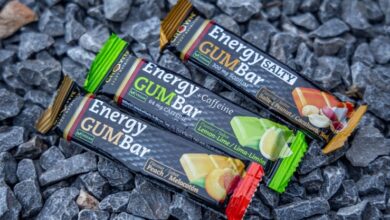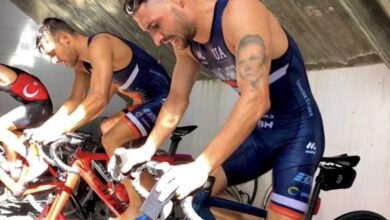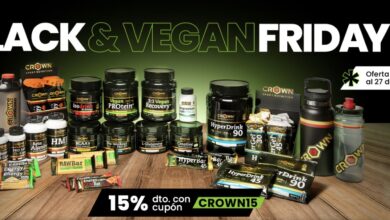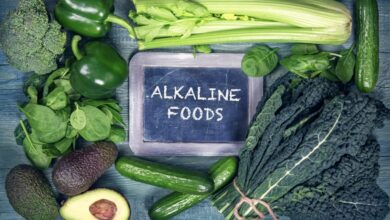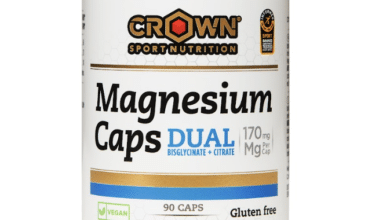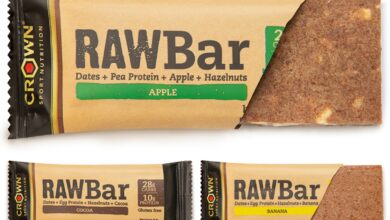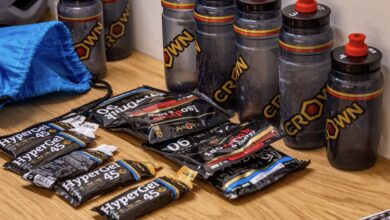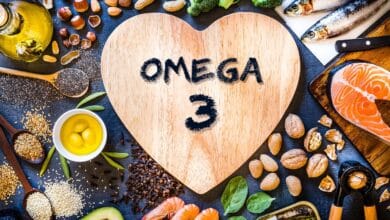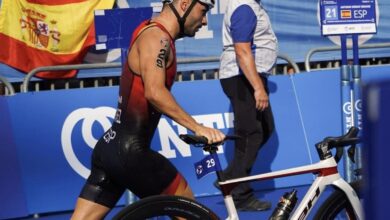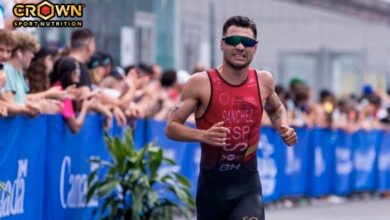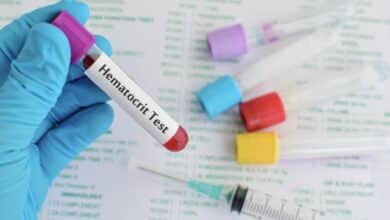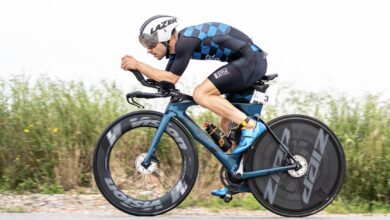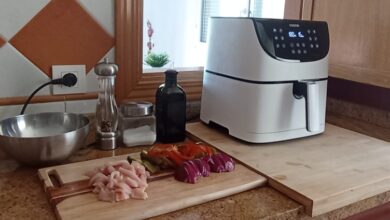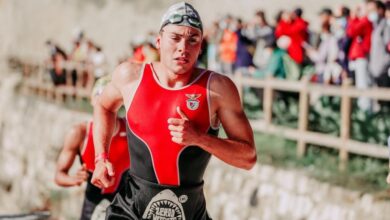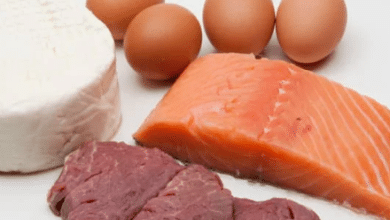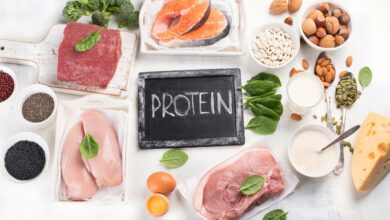The Importance of Antioxidants in the Athlete's Diet: Keys to Effective Recovery
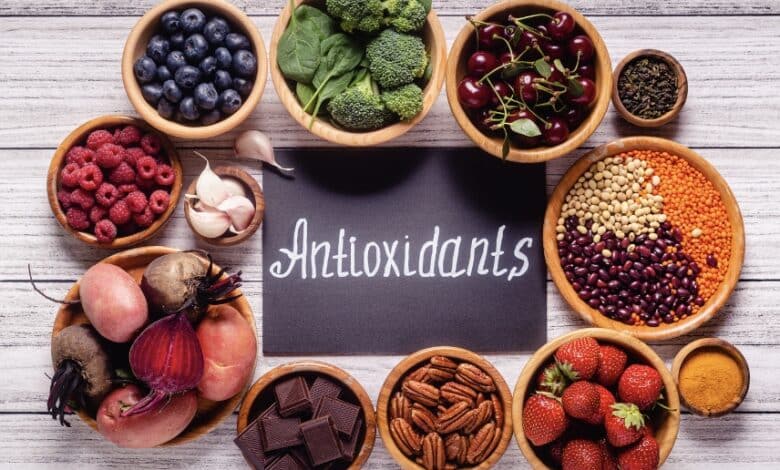
If you are an endurance athlete, such as a triathlete or marathon runner, you will know that every detail counts when it comes to performance and recovery.
But have you ever thought about the role antioxidants play in your well-being?
Today from the hand of Crown Sport Nutrition Let's delve into this topic that, although often overlooked, is crucial for any serious athlete.
The Invisible Enemy: Oxidative Stress
Oxidative stress is a phenomenon that occurs when there is a imbalance between the production of free radicals and the body's ability to counteract them.
This stress is especially high during periods of intense training and can negatively affect both your performance and your health.
Additionally, oxidative stress increases with the intensity and duration of exercise, which can lead to slower recovery and a higher risk of injury.
Antioxidants to the Rescue
This is where antioxidants come into play.. These substances, found in plant foods, neutralize free radicals.
Esto Helps maintain a robust immune system, reduce inflammation and, in general, to improve health and recovery.
Among the best-known antioxidants are vitamins A, C and E, selenium and phytochemical compounds such as catechins and resveratrol.
| antirust | Main Source | Benefits for the Athlete |
| Vitamin C: | Citrus fruits, peppers | Improves the immune system, reduces inflammation |
| Vitamin E | Nuts, seeds | Protects muscle cells, improves recovery |
| Vitamin A | Carrots, spinach | Improves vision, strengthens the immune system |
| Selenium | Fish, Brazil nuts | Protects the heart, improves thyroid function |
| Catechins | Green Tea | Reduces inflammation, improves cardiovascular health |
| Resveratrol | Grapes, red wine | Improves cardiovascular health, has anti-inflammatory properties |
| Anthocyanins | Berries | Improves cardiovascular health, reduces inflammation |
| Quercetin | Apples, onions | Improves resistance, has anti-inflammatory properties |
| Curcumin | Turmeric | Powerful anti-inflammatory, improves recovery |
| Alpha lipoic acid | Red meat, spinach | Improves cellular function, has anti-inflammatory properties |
Critical Moments: When to Pay Attention
There are phases in the season where it is crucial to pay attention to antioxidant nutrition.
We are talking about periods of intensive training, double sessions and frequent competitions. In these stages, a diet rich in antioxidants can be your best ally. But be careful, not everything goes.
Supplementation with high doses of antioxidants could be counterproductive, as it could interfere with physiological adaptations to training.
Consume foods rich in antioxidants as part of a balanced diet and in combination with a well-structured training plan can offer multiple benefits.
These range from regulating oxidative stress to reducing inflammation and muscle damage, factors that are crucial for effective recovery.
In other words, you're not only nourishing your body with what it needs to perform at its best, you're also providing the tools necessary for faster, more efficient recovery.
This comprehensive approach can be beneficial during periods of intensive training or in preparation for important events.
Friendly Foods: Your Antioxidant Arsenal

Foods rich in antioxidants include berries such as blueberries and strawberries, high-quality cocoa, green tea, and spices such as ginger and turmeric.
They can also be found in vegetables such as broccoli, and in citrus fruits such as orange and lemon.
These are some of the most common foods:
| Food | Type of Antioxidant | Additional benefits |
| Blueberries | Anthocyanins | Improves memory, cardiovascular health |
| Strawberries | Vitamin C, anthocyanins | Dental health, anti-inflammatory |
| oranges | Vitamin C: | Immune health, cardiovascular health |
| Green Tea | Catechins | Metabolism, mental health |
| Cocoa | Flavonoids | Cardiovascular health, mood |
| Nuts | Vitamin E | Brain health, anti-inflammatory |
| Spinach | Vitamin A, C | Eye health, strengthens bones |
| Broccoli | Sulforaphane | Cellular health, anti-cancer |
| Turmeric | Curcumin | Anti-inflammatory, improves digestion |
| Red peppers | Vitamin C: | Immune health, improve skin |
| Garlic | Allicin | Antibacterial, improves blood pressure |
| Ginger | Gingerol | Anti-inflammatory, improves digestion |
| Cinnamon | Polyphenols | Regulates blood sugar, anti-inflammatory |
| sour cherry juice | Anthocyanins | Improves sleep, reduces muscle pain |
Practical Strategies: How to Incorporate Them?
Are you wondering how to incorporate foods rich in antioxidants into your sports routine?
The answer varies depending on the intensity of your training. In periods of lower load, a balanced diet with a good amount of vegetables each day will be sufficient. You don't need to do anything special; The key is in variety.
Now there is Times When You Should Pay More Attention to Your Antioxidant Intake. These include:
- Phases where you need to maximize your recovery or minimize stress and muscle damage. Think about days with two competitions in a row or a week with a high frequency of events.
- Periods where the Training volume or intensity increases significantly. This could be when you introduce double sessions or strength training as something new to your routine.
- Situations where usual training conditions change, such as training at altitude or traveling to places with challenging weather.
In these cases, increasing your consumption of foods rich in antioxidants can be very beneficial.
You can include these foods in your post-workout meal and throughout the day to maximize their positive effects.
To incorporate these foods into your diet, we give you some easy ideas to do.
| Food Idea | Ideal Moment | Additional benefits |
| Spinach and banana smoothie | Breakfast | Energy, eye health |
| Red fruit or sour cherry juices | Post-workout | Muscle recovery, hydration |
| Red fruits with cocoa and cinnamon | Snack | Energy, mood improvement |
| Oranges or tangerines | Snack | Immune health, hydration |
| Dark chocolate (high in cocoa) | Snack | Improves mood, cardiovascular health |
| Broccoli and Walnut Salad | Meal | Cardiovascular health, anti-inflammatory |
| Garlic and onion in your dishes | Lunch/Dinner | Improves circulation, antibacterial |
| Turmeric in soups or stews | Lunch/Dinner | Anti-inflammatory, improves digestion |
| Green tea or ginger infusions | During the day | Hydration, improves digestion |
| Cinnamon tea | Before bedtime | Regulates blood sugar, relaxing |
If you are looking for supplements to complement your diet and boost your performance and recovery, Crown Sport Nutrition offers some excellent options.
Starting with his OMEGA-3 PRO, which are fish oil pearls with 2600 mg of Omega 3 in TG form.
These pearls are ideal for improving cardiovascular health and reducing inflammation.
Then we have the 3:1 PRO RECOVERY+, an energy and muscle recovery that combines different carbohydrates and isolated whey protein in a 3:1 ratio.
This product also includes extra leucine, glutamine and vitamins and minerals, which makes it a perfect ally for post-workout recovery.
Last but not least is the CREATINE MONOHYDRATE, which is the best ultrapure creatine monohydrate on the market, with anti-doping certification by Informed Sport.
This supplement is great for improving muscle strength and power, and comes in a neutral flavor so you can easily mix it with your favorite drinks.
References:
Gómez-Cabrera MC, Carretero A, Millán-Domingo F, García-Domínguez E, Correas AG, Olaso-González G, et al. Redox-related biomarkers in physical exercise. Redox Biol. 2021 Jun 1;42. Halliwell B. Understanding mechanisms of antioxidant action in health and disease. Nature Reviews Molecular Cell Biology. Nature Research; 2023. Shahbazi R, Sharifzad F, Bagheri R, Alsadi N, Yasavoli-Sharahi H, Matar C. Anti-inflammatory and immunomodulatory properties of fermented plant foods. Vol. 13, Nutrients. MDPI AG; 2021. Margaritelis N V., Paschalis V, Theodorou AA, Kyparos A, Nikolaidis MG. Antioxidants in personalized nutrition and exercise. Vol. 9, Advances in Nutrition. Oxford University Press; 2018. p. 813–23. Harty PS, Cottet ML, Malloy JK, Kerksick CM. Nutritional and Supplementation Strategies to Prevent and Attenuate Exercise-Induced Muscle Damage: A Brief Review. Vol. 5, Sports Medicine – Open. Springer; 2019. Owens DJ, Twist C, Cobley JN, Howatson G, Close GL. Exercise-induced muscle damage: What is it, what causes it and what are the nutritional solutions? Vol. 19, European Journal of Sport Science. Taylor and Francis Ltd.; 2019. p. 71–85.
There are no previous results.







